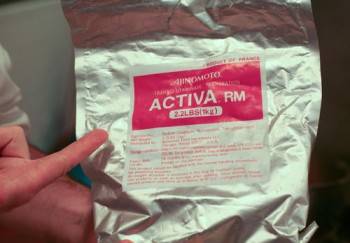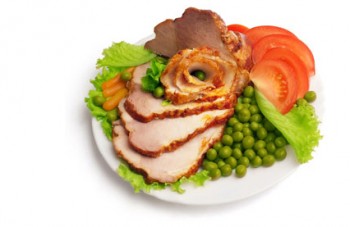 Rising meat demand, rising risks in the Middle East: antibiotics, meat glue and global warming.
Rising meat demand, rising risks in the Middle East: antibiotics, meat glue and global warming.
World meat consumption is on the rise and this is despite increase awareness of the health risks of eating refrozen meat sold as “freshly cut”, and the dangers of eating an enzyme called transglutaminase otherwise known as “meat glue”. A recent study made by the Worldwatch Institute’s Nourishing the Planet project for Vital Signs Online, has found that world wide per-capita meat consumption increased from 41.3 kg in 2009 to 41.9 kg in 2010 – about half a kilo more per year. Taking all factors into account, including people living on the edge of starvation in the developing world, compared to those living in the industrial world, there is a big discrepancy between the 32 kg per year average for people living in the developing world and an average of 80 kg for those in the industrial world.
 Cattle raising: an important business even in poorer countries
Cattle raising: an important business even in poorer countries
The research study found that raising livestock accounts for roughly 23 percent of all global water use in agriculture, equivalent to 1.15 liters of water per person per day.
This finding alone should be an eye opener for arid and semi arid countries in North Africa and the Middle East, where it was also found that despite the problems of water shortages and greenhouse gas emissions caused by livestock production, 70% poor people living in many of these countries and subsisting on incomes of only $1 a day depend heavily on livestock raising to whole or partially feed their families. If one were to remove incomes made from oil and gas production in many of these countries, raising livestock is high on the list of occupations.
One of the exceptions in the Middle East, from a household occupation standpoint, is Israel, where less than 3% of the total population makes their income from farming, including livestock and poultry production. Israelis consume around 98.9 kg of meat per person annually, with a great deal of this amount being poultry products.
This compares to 41.65kg per person in neighboring Jordan, 22.8kg in Egypt, and 54.03kg in Saudi Arabia. Of Israel’s total annual meat product consumption, a part of it consists of processed “deli meats”, known fondly as “knacknick, and sausages or hot dogs (knacknikiot).
These products, such as pastrami, smoked chicken and turkey breast, and smoked beef, contain large amounts of chemical taste enhancers and preservatives, plus the bonding enzyme transglutaminase, better known as meat glue.
As mentioned previously in this news site, transglutaminase is said to be used in meat, fish, poultry, dairy products; and even in pasta and bread!
Referring back to the meat consumption study conducted by Worldwatch Institute, Poultry production is the fastest growing meat sector, increasing 4.7 percent in 2010 to 98 million tons.
Much of the poultry raised in Israel, for example, comes from what are known as “factory farms” where thousands of chickens and turkeys (the main types of poultry being raised) are fed a diet of chemically enriched meal products containing a number of antibiotics to keep the poultry healthy until being slaughtered.
According to the Worldwatch Institute study seventy-five percent of the antibiotics used on livestock are not absorbed by the animals and are excreted in waste, posing a serious risk to public health. This percentage must also apply to poultry as well, although organic and “free running” poultry said to not contain these antibiotics and growth stimulants are also available to consumers, albeit at a much higher cost.
It’s unlikely that we will see a radical change of consumer eating habits to less meat consumption anytime soon. With this in mind, the eating of organic and pasture raised livestock, as well as poultry, will do a lot towards helping the environment and causing less health problems in humans. The only factors here are the increased costs to consumers for these products. It might also be a good idea to air more consumer education programs against eating processed “knacknick” meat products containing (you guessed it) meat glue.
Read more about meat consumption issues:
UAE McDonalds Greases its 100 BioDiesel Delivery Fleet
Meat Glue: It’s Everywhere But We Don’t Know It
The Meat You Eat May Not be What You Think





NEED INFORMATION MEAT
Are you guys knowledgeable about cooperatively raising grass fed beef? I’d like to get a program like that going.